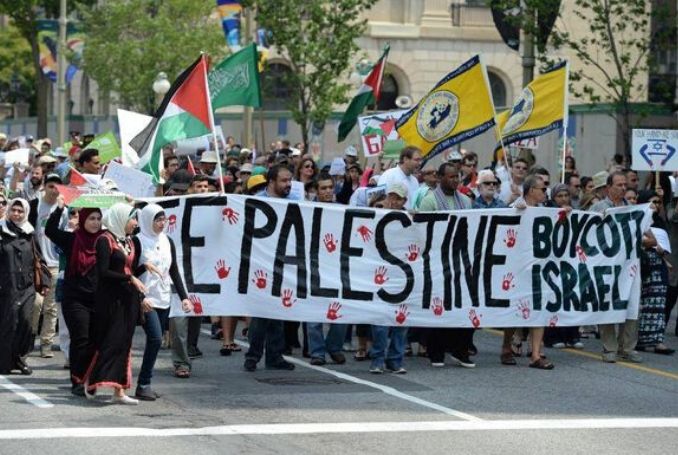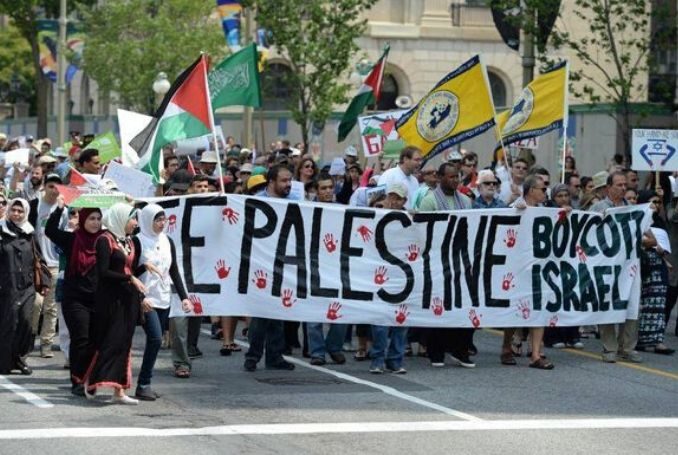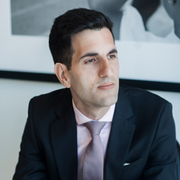

Paul Salvatori
Recently, I was sifting through old videos of Irwin Kotler, Canada’s Special Envoy on Preserving Holocaust Memory and Fighting Anti-Semitism. I was particularly looking for observations he made about the nature of calling someone racist.
I finally found it. Here’s what he says:
“Who can stand against fighting racism? In fact, the worst thing you can say about anyone in the world today is calling them a racist. No further proof is required.
Before I go any further, it’s important to clarify that I’m not quoting Kotler here because I think he’s an exemplary anti-racist. As we’ve discussed elsewhere, he’s quite the opposite, routinely denying the Nakba and being a major apologist for Israel’s criminal state.
But certainly his observation pierced my heart. Perhaps ironically, it represents what defenders of the criminal state do to Palestinian activists on a daily basis, and injustice.
They vilify them as “anti-Semites.” Palestinian righteous defenders quickly dismiss accusations to save face. Often it is done by having to repeat what should be obvious. Criticism of the state of Israel, even in its harshest forms condemning) is not anti-Semitism, but the opposite.
As pro-Palestinians, I believe that the fact that we are still in this position is a symptom of something greater in the culture: the lack of a mainstream discourse that captures the truth about Palestine. use. Like Kotler, they know they can attack Israeli critics as “anti-Semites.” Especially since Israel admits that it has (for decades) succeeded in branding itself as “Jewish” (and calling the Jews who oppose it “self-loathing”). )—that seems like a plausible claim. This puts us, as pro-Palestinians, in a constant cycle of having to respond to and undermine accusations through the presentation of truths, facts, arguments, etc.
How this spectacle diverts attention from Israeli crimes is much debated. But it siphons more energy from the point of that struggle than it should be taken seriously by all who care about Palestine and are involved in the struggle for Palestinian justice. and hold Israel legally accountable, giving Palestinians the right to return to their homes and all the material things (words that need to be emphasized here) that are necessary for justice to actually take place. It means to secure
This should technically be the focus of Palestinian activity. But in a society where much of the public interprets criticism of Israel as anti-Semitic, largely because of the above branding, Palestinian activists consistently demonstrate that dissatisfaction with the state does not equate to hatred. I am forced to.
This is obvious to Palestinian activists, but not on the scale needed. Mainstream media reports that Palestine is not primarily subject to Israeli apartheid and is involved in a ‘war’ or ‘conflict’ with Israel, although this has been confirmed by exhaustive investigations by the UN and other human rights groups This pushes aside the reality of Israeli apartheid itself, at best pushes a margin of public thought, and makes it easier for Israel to carry out its campaign of ethnic cleansing against the Palestinians without protest. Become.
To this Yasmin Abu Rabban and Abigail B. Buchan, I say:
“As a classic feature of racial gaslighting, the inequalities of power sanctioned by designating Israel as an apartheid state are deliberately rendered unrecognizable. , but epistemologically abandoned, hidden, and blurred, in which inequality exists between the Jewish Israeli population and the state (economy, The history of Palestine and Palestine is either not recognized or distorted in Western and Israeli educational curricula. I have.”
In contrast, when fact- and experience-based education is provided throughout the West, it ultimately leaves society empowered to know the truth about Palestine and the crimes committed against it by the State of Israel. be connected. Likewise, anyone who confidently rejects the absurd allegation that wanting to stop, or trying to stop, such criminal activity (international boycotts, sanctions, withdrawal movements, etc.) is anti-Semitic. I have.
On some level the “logic” or mentality behind this is pretty ridiculous. Israeli advocates who subscribe to it want people to see as racist in some way effective people who genuinely care about the dignity, welfare and future of Palestine. A good education tackles this problem head-on. It is undoubtedly a serious issue, especially troublesome as someone who used to teach classes on ethics and morality, such as how certain desires, if expressed or acted upon, undermine the moral integrity of society. This includes Israeli defenders trying to dissuade others from fighting for Palestine, effectively allowing greater (and worse) harm to the world.
Responsible educators show students how this can be counteracted, making it clear that being pro-Palestinian is a positive attitude: opposing settler colonialism and imperial rule. to The problem is not who wants to see it disappear, but who wants it to live.
This is often done through lofty rhetoric that dishonestly frames Israel as an “exemplary” nation. Even where it works, it doesn’t change the facts on the ground, so to speak. Rather, it reflects the power of deceptive rhetoric.
This is a summary of a paper published by Kotler in 1999. International Conference on the Dynamics of Anti-Semitism in the Late 20th Century (Jerusalem):
“There is a clear, if not symbiotic, symbolic relationship between Israel, the United Nations, and human rights. genocide convention Israel is a nation born out of that promise.and if Universal Declaration of Human Rights Designed to be the Magna Carta of mankind, Israel was supposed to be, in the words of its founder, “a right to a nation.”if 1949 Geneva Convention It was a memorial to international humanitarian law, the genocide of Jews in Europe. Geneva Convention“
This may sound poetic. But that doesn’t capture the truth of Israel as a criminal state. Such truths only become apparent when you take seriously and understand what is going on outside your head. Unlike Kotler, we cannot operate at the level of idealism.
Israeli historian and pro-Palestinian activist Ilan Pappe is instructive here. He said at his 2008 Al-Awda convention:
“We need to focus on the campaign [for Palestinian justice] Don’t settle for vague concepts. We are not fighting something invisible. … we are fighting criminals. And we know their crimes. And we’re going to be experts on that. Just not emotional about it. …you should know the names of the victims. I need to know the name of the place where the crime is being committed.I think we should appear to be very serious about it. And to tell those who like the haunted Spanish judge [Augusto] If Pinochet tried to bring him to justice in every corner of Europe, we would annoy the people (behind Israel’s crimes).
I would like to know the name of the pilot who dropped the bomb on the Palestinians in the Gaza Strip. …No one knows the name of the Israeli Air Force Commander, but he is a big criminal. If you want to succeed politically, you should know his name as well as you know the names of his victims. It is not enough to talk about Israel committing crimes. That’s like saying America is committing crimes. it didn’t move anything. “
In a similar spirit, we must fight in solidarity with the Palestinians to create a discourse that permeates the larger culture of what Israel has done to the Palestinian people over the years. As with the observation of , energy should not be wasted on abstract dialogues that have little, if any, material connection to history, including the present moment. That’s where Israeli advocates want us to be. This is where their false accusation of anti-Semitism “makes sense.”
The more people understand that Palestinian work is fundamentally about ending state-sponsored crime, the more support there will be. And those who harass us will be fired for what they are, at least not to blame.
liar.

– Paul Salvatori is a Toronto-based journalist, community worker, and artist. Much of his work on Palestine has to do with public education, including speaking to writers, academics and activists through his recently produced interview series, “Palestine in Perspective” (The Dark Room Podcast). He contributed this article to his The Palestine Chronicle.
